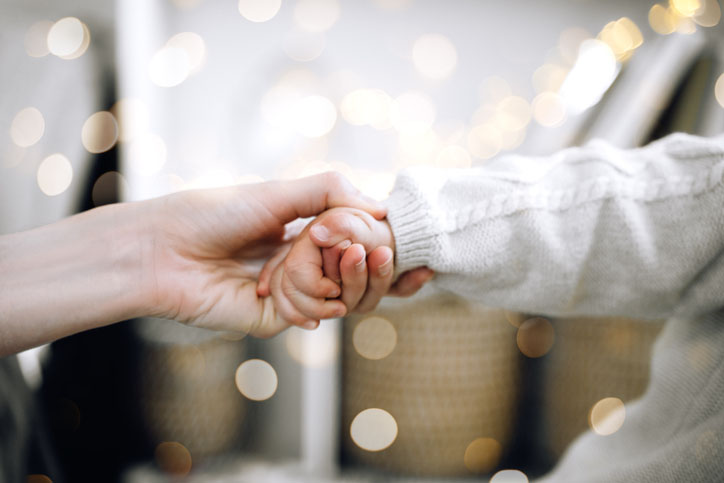
We were searching for an Israeli Jew who does not light Chanukah candles. Surely, there is one such person. Someone must have forgotten to light his Menorah, or didn’t feel like it, or does not appreciate the holiday, or worries about adding fire to a warming globe.
So, we were looking at the data, time, and again, and again. But we could not find anyone. Not until one of us – Prof. Camil Fuchs of Tel Aviv University – raised his hand, half-embarrassed. Apparently, he is the one Israeli Jew who does not light Chanukah candles. The only one we could find.
A step back. Prof. Fuchs and I partnered to conduct a detailed study of Israeli Judaism. You can read all about it in our new book #IsraeliJudaism, Portrait of a Cultural Revolution. Among other things, we closely examined how Israeli Jews practice their holidays.
In the case of Chanukah, we asked about Menorah and latkes, doughnuts and songs, children activities and Chanukah gelt (63% give small change or a gift to their children). We asked Israelis if they light the Menorah every night or just some nights. Then we looked at the numbers. Then we discovered that, statistically speaking, virtually all Jews in Israel light the Menorah.
That is, except for Prof. Fuchs.
Three in four Jews in Israel (73%) light Chanukah candles every night. The rest of us light some nights. In the United States, the proportion of Jews who light Chanukah candles is also high. This isn’t surprising. Chanukah is a very powerful festival in a place where around the same time the majority of the population celebrates Christmas, with its trees, lights, songs, and presents. Two-thirds of Jews in the United States list Chanukah among the three most important festivals. And over time, Chanukah has been integrated into the American landscape of winter holidays.
Nevertheless, proportionally fewer American than Israeli Jews light Chanukah candles. In Washington D.C., around 80%, but it is unclear whether they do so every night. Around half of Las Vegas’ Jews always light candles (53%). In Denver, Colorado, the rate is roughly the same (54%). In Orlando, it is almost two-thirds (64%). In Detroit, about the same (69%). In New York, slightly less (60%). Although there is no specific assessment for Los Angeles, most western Jewish communities show similar patterns. In San Francisco, around 60% light candles. In Palm Springs, 65%. In San Diego, 68%. The last study of LA Jews counted about a quarter of respondents who said that celebrating Jewish holidays was not important for them (27%). The same number “never” attend a religious service. The math is simple, the situation not difficult to assess.
What this means is simple: Even Chanukah – a seminal festival of American Jewry – is celebrated more by Israeli Jews than American Jews. Why? Surely, one reason is the higher percentage of Israeli Jews who consider themselves bound by halakha. But that’s hardly the main reason.
The festival of Chanukah is a good example, out of many, of how Israeli Judaism is taking shape, and how it’s generally different from American Judaism. In our book, we focus on four such differences: First—the Jews of Israel are neither concerned about nor preoccupied with “Jewish continuity” in the Diaspora sense; Second—the Jews of Israel do not need to make an effort to feel Jewish or to be actively Jewish; Third—the Jews of Israel are indeed active Jews, much more so than Americans. Fourth—for the Jews of Israel, “Israeliness” is a central element of their Jewish identity.
Chanukah provides us with an opportunity to discuss all these differences in detail and explain why Israel easily wins the (imaginary) Chanukah contest. Of course, it all begins with Israel’s special circumstances. Conditions in Israel make it easier to observe Jewish rituals and customs. During Chanukah, schools are on vacation, and there is an almost obligatory family get-together.
And yet, one suspects there’s more to the story than circumstances.
As we celebrate Chanukah, the concept of Jewish continuity is front and center. The Hasmoneans fought against assimilation, they fought against interfaith marriage. We celebrate their zealotry. Surely, for Americans this could present a conceptual and emotional challenge.
As we celebrate Chanukah, the concept of Jewish nationality is front and center. The Hasmoneans fought and gained independence. They fought for a Jewish State, and we celebrate their nationalistic zealotry. Surely, for Americans this could present a conceptual and emotional challenge.
So maybe the outcome of all these differences is the significant practice gap between the two largest Jewish communities. Maybe it is more than coincidence based on geography that a holiday that’s relatively minor for Israelis is still celebrated more intensely than a holiday that’s relatively major for American Jews. Maybe – and this is an assumption on which I hope to have a discussion with my fellow Jews in America – those who can more easily identify with the main message of the Chanukah story, also light more Chanukah candles.
——-
Shmuel Rosner’s book #IsraeliJudaism, Portrait of a Cultural Revolution (with Prof. Camil Fuchs) is available on Amazon.























 More news and opinions than at a Shabbat dinner, right in your inbox.
More news and opinions than at a Shabbat dinner, right in your inbox.